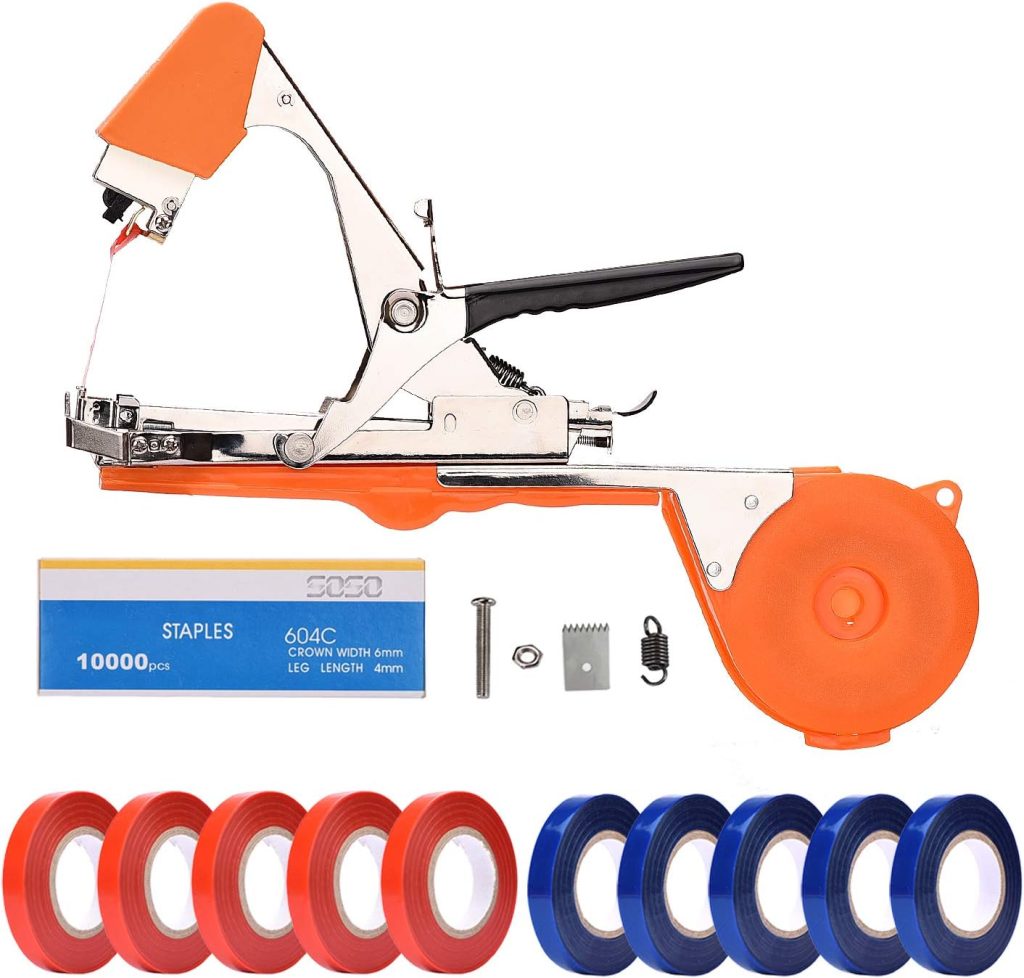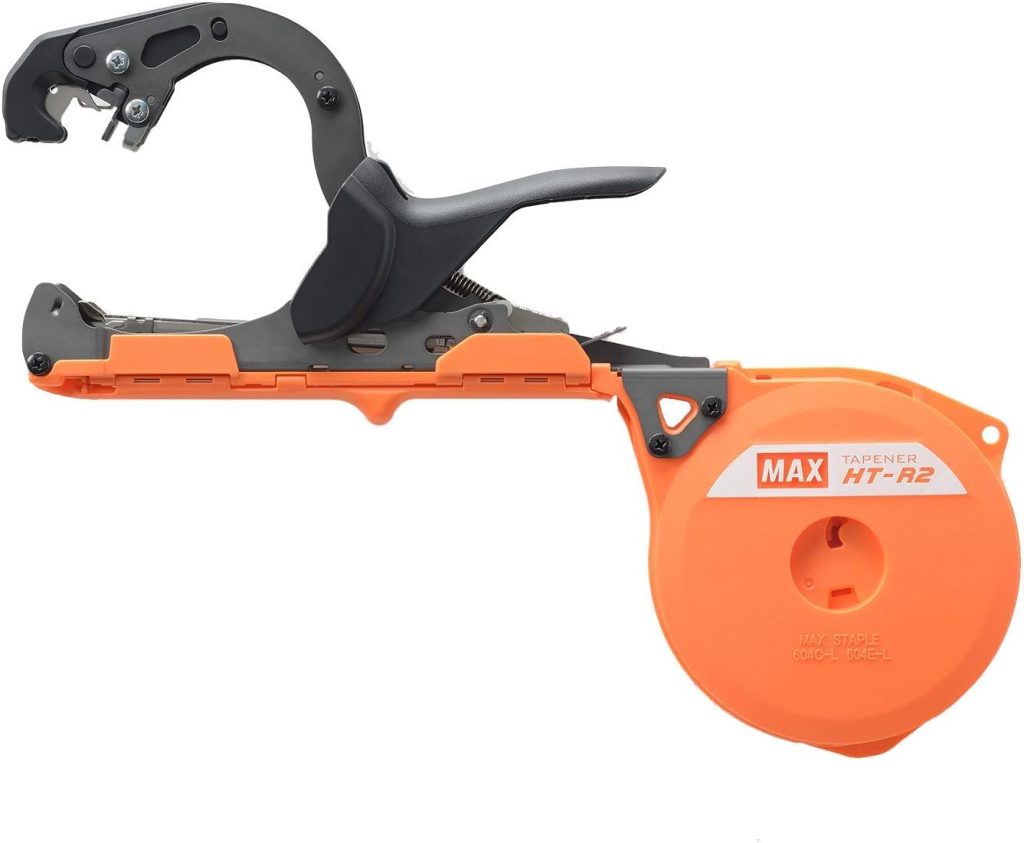Plant Tying Machine
*As an Amazon Associate, I earn from qualifying purchases. Please see our disclosure to learn more.
A plant tying machine is a device designed to automate the process of tying plants to supporting structures such as trellises, stakes, or wires in agricultural or horticultural settings. These machines are particularly useful in large-scale operations where manual tying would be time-consuming and labor-intensive.
Typically, a tying machine consists of a handheld or mounted tool equipped with a spool of tying material, often biodegradable twine or plastic tape. The machine wraps the tying material around the plant and the support structure, securing them together. Some machines may use a twisting mechanism or a staple-like fastening method to secure the tie.
Plant Tying Machine Benefits
Using plant tying machines offers several benefits, especially in agricultural and horticultural settings:
- Efficiency: Plant tying machines can significantly speed up the process of tying plants to support structures. They automate what would otherwise be a labor-intensive and time-consuming task, allowing workers to cover more ground in less time.
- Labor Savings: By automating the tying process, plant tying machines reduce the need for manual labor. This can lead to substantial cost savings for businesses, as fewer workers are required to perform the task.
- Consistency: They ensure a consistent tying technique across all plants. This consistency is essential for promoting uniform growth and support for the plants, which can ultimately lead to better yields or healthier plants.
- Reduced Physical Strain: Manual tying can be physically demanding, particularly when dealing with large numbers of plants. Plant tying machines can reduce the physical strain on workers by mechanizing repetitive tasks. This helps lead to fewer instances of fatigue or strain-related injuries.
- Precision: Many plant tying machines offer adjustable settings for tying tension and length. This allows users to achieve precise results tailored to the specific needs of different plant varieties or growth stages.
- Improved Plant Health: Properly tied plants are less likely to suffer from damage or breakage, which can occur when plants are not adequately supported. By securing plants to their support structures effectively, plant tying machines help promote healthier growth and reduce the risk of crop loss.
- Versatility: A plant tying machine is often adaptable to various types of support structures. You can use them with different types of tying materials, including biodegradable twine, plastic tape, or wire. This versatility makes them suitable for a wide range of crops and growing conditions.


